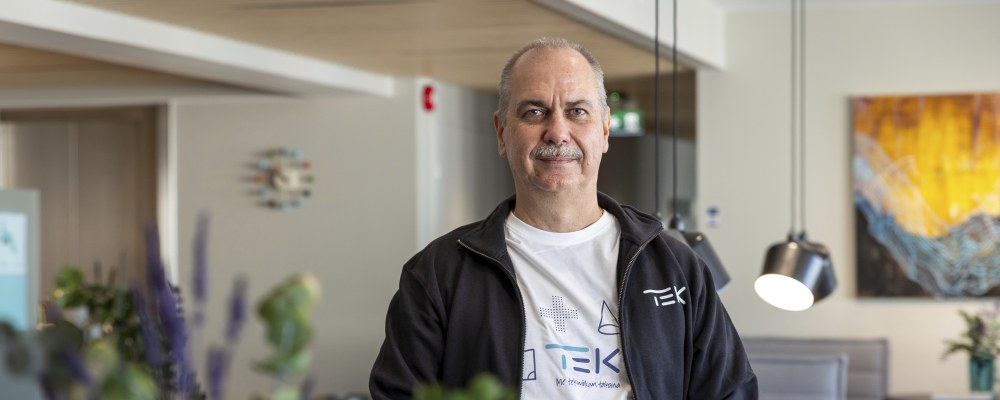
1. What do you do at TEK, Daniel Valtakari?
I have two main areas of activity: universities and UAS’s and international work.
In higher education, my duties include supporting members and supervising their interests, from individual members and their needs to the collective agreement negotiations for the whole university or UAS sector.
My international work includes both TEK’s lobbying in international forums and members who have moved to Finland from elsewhere. I help our members find jobs in Finland; I travel around the country giving training sessions and also provide personal advice.
Outside Finland, my target groups include decision-makers, political groups and MEPs in Europe. I educate, discuss and communicate TEK’s views and positions. People listen to whoever is most active – that’s why it’s important to be there on the ground.
This work is done in cooperation with other unions. UNI Global, for example, is a global union federation representing more than 20 million workers in over 150 countries. I chair the Professionals and Managers group of UNI Global. Last January, I trained the European Professionals and Managers management team in the use of AI, encouraging its adoption.
I am also responsible for TEK’s General Council election, which will next take place in spring 2026 – and I also encourage people to be active in this respect!
2. What’s the best thing about your job?
The wide range of advocacy efforts for members both in Finland and abroad. Broad contexts that affect each other in many ways.
3. What’s the hardest thing?
The ever-changing environment is challenging.
People often also have fears and it can be very difficult to dispel them. The Nordic (working) culture can appear quite new and different to people from other parts of the world.
4. What do members ask the most?
I help members with a wide range of work and employment-related issues, from questions about intellectual property rights and job search to mistreatment and bullying.
Many are unfamiliar with international lobbying. I am often asked about the benefits it has for individual members. In practice, I influence the preparation of EU directives, for example; I have been involved in providing comments on legislation such as the GDPR, the Artificial Intelligence Act and the Minimum Wage Directive. In this context, it is particularly important to convey the views and positions I mentioned earlier, as our approach to issues such as AI can influence the content of the directive. Many regulations in European lawmaking trickle down to national laws and, as a result, my work also has an impact on the lives of individual members.
5. How many members do you advise per year?
Quite a few, and an individual member may have a long-term need for help, depending on the issue.
6. What do you wish every person in Finland knew about trade unions?
That trade unions are there for them and not just some vague structures somewhere far away.
A trade union is only as strong as its membership. A large membership means a strong union and good lobbying both individually and collectively – especially if members are actively involved in union activities.
7. What is the main difference between Finnish trade unions and those in other countries?
In Finland, unions provide a wide range of services and party politics is increasingly taking a back seat. Similarly, religiously affiliated trade unions are rare.
8. Why should people join a union in Finland?
Compared to many other countries, we have achieved many improvements in working life through trade unions. Now, upholding these achievements requires more and more work and new challenges and needs are constantly emerging.
9. What’s your best tip for finding a job in Finland?
Believe in yourself, start right away and write a good application. There’s room for improvement in all these areas.
10. How about your best tip for working in Finland?
Let’s be fair to each other.